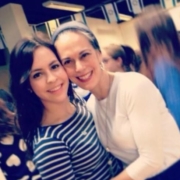Editorial 29/4/2021
Dear Parents,
Our staff CPD on Tuesday was training on identifying and then overcoming unconscious bias. Research has shown that teachers instinctively think that boys are better at Maths than girls, although when tests were marked blind, the girls scored more highly. Quiet children are often considered less clever than their more vocal peers. Students with messy handwriting will not do as well as those whose work is very neat even if the content is comparable. Students whom teachers like will perform better and everyone lives up – or, more concerningly, down-to the level expected of them. We can also be influenced by a host of factors such as identifying a student with someone whom we have known in the past (for good or ill), hearing things about students which mean we judge them before we have even met them, or believing stereotypes such as that some ethnic groups are considered to be better at particular subjects.
The good news is that although all of us (not just teachers) are prone to unconscious bias, we can start to do something about it and to consciously act to adjust our behaviour or attitudes. At school we have been marking the Year 11 and Year 13 assessments by candidate number to avoid bias and the training made us reflect on our classroom practice. Unconscious bias can also affect the way that families function. Is one child ‘the clever one’ or ‘the sporty one’ or musical or helpful, or perhaps difficult or naughty? These labels can quickly become self-fulfilling prophecies as the child in question acts in accordance with our expectations. So, we all need to question the way we look at other people and ask ourselves how far are we being affected by preconceptions and how we can change them.
Have a good Shabbos,
Mrs K Brice
Headteacher
Hasmonean High School for Girls




